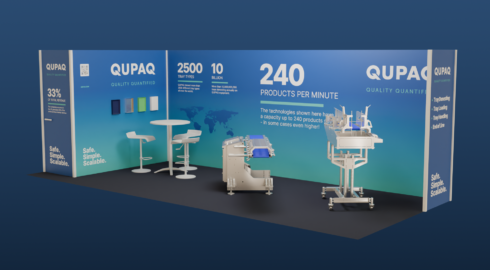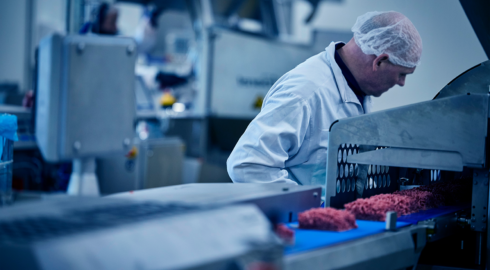Advancing Automation: The Future of Robotics
Robotics expert and Technology Manager at the Danish Technological Institute, Søren Peter Johansen, gives his perspective on automation, its impact on the food industry, and the promising future it holds
AUTOMATION GROWTH
Nothing But Advantageous
In the rapidly evolving landscape of the food industry, automation has emerged as a pivotal force, reshaping operations, and driving efficiency. Here, Søren Peter Johansen, robotics expert and Technology Manager at the Danish Technological Institute since 2010, gives his perspective on automation, its impact on the food industry, and the promising future it holds.
Maximize Man-Hours, Save Money
Søren Peter Johansen highlights how automation’s role in the food industry mirrors the broader technological landscape: “The need for automation stems from multiple factors, including the quest for enhanced productivity and the challenges posed by labor shortage. Companies have turned to automation to optimize their processes which allows them to achieve more with each man-hour”. He furthermore highlights that the lack of available labor has accelerated the adoption of automation, particularly as a solution to the challenges of recruitment.
An increasing number of companies across the sector are integrating robots and automation solutions into their workflows. This trend is reflective of a larger movement across industries, driven by the economic advantages of automation. Søren explains: “The direction of automation in the food industry therefore follows an upward trajectory. Food companies are buying more and more robots and automation solutions, just like many other industries. And they’re doing so because, ultimately, there’s money to be saved.”
Read also: Unleashing Cost Savings: The Power of Automation in Food Manufacturing
Statistical Insights into Automation Growth
Søren shares insights into the general trend of automation growth. “We see that the number of robots per employee is steadily increasing. Statistics shows that there are approximately 300 robots per 10,000 employees in the broader industry, which is a figure that has doubled over the last six to seven years.” These numbers indicate the increasing reliance on automation technologies to optimize operations and drive efficiency – a trend that is expected to continue and expand in the coming years, he states.
Data from Statista supports Søren’s assertion that the future of the food industry will be shaped by automation, as the global food automation and robotics market is anticipated to grow to around 5.4 billion units by 2030 – more than twice as big as 2022.
Who is Søren Peter Johansen?

Copyright Ingeniørforeningen IDA
- Robotics expert and Technology Manager at the Danish Technological Institute, where he has been employed since 2010.
- The head of the secretariat of DIRA (Danish Robot Network).
- Søren has a deep and broad industry knowledge and has installed robots and automation solutions both inside and outside of Europe.
- He has participated in several EU-funded research and development projects and has been responsible for several commercial projects, among these, the six-part docuseries “The Road to 2050” from The Franklin Institute.

(Statista 2023)
Three Key Benefits of Adapting Automation
The increasing global market volume for food robotics are based on their multifaceted and impactful benefits. In this regard, Søren outlines three key advantages:
- Cost Efficiency: Automation offers long-term cost savings by optimizing processes and reducing the reliance on manual labor. Companies can achieve higher productivity without proportionate increases in workforce size.
- Consistent Quality: Automation ensures consistent product quality by minimizing human variability. This is particularly crucial in the food industry, where consistent taste, appearance, and quality are of great importance.
- Streamlined Production: Automation facilitates smoother production flow by mitigating disruptions caused by factors such as employee absenteeism. The reliability of machines ensures that production plans can be adhered to more effectively.
What Does the Future of Automation Hold?
Looking ahead, Søren emphasizes the potential of artificial intelligence as a transformative force when it comes to automation in the food industry. He sees that its ability to aggregate knowledge from millions of individuals will position it as a powerful tool for various applications: “AI is a system that is co-trained by humans – millions of humans. So, a system like this can gather knowledge from a lot of people. Therefore, in the context of the food industry, AI could revolutionize processes such as for example, assessing foods’ ripeness and adhere to taste preferences.” So, by tapping into collective insights, Søren concludes that AI has the potential to enhance decision-making and elevate product quality, and overall, he believes that it will not only contribute to cost savings and consistency in a production, but also build a foundation for future growth – just like many other automation solutions.
Read also: Crafting the Future: Himmerlandskød Continues to Have Automation at Heart





